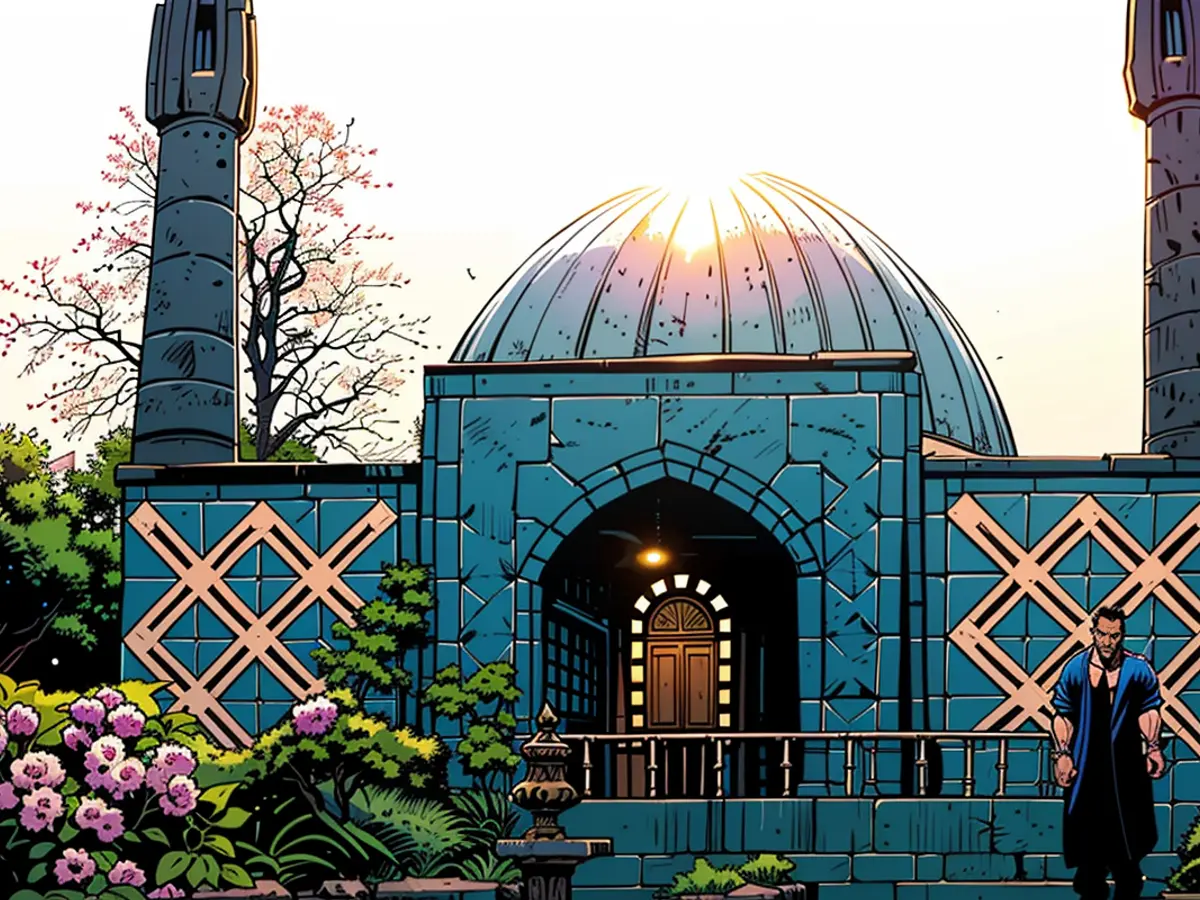IZH-Prohibition - Discussion about future use of the Blue Mosque
After the confiscation of the Blue Mosque in Hamburg (IZH) following the ban on the Islamic Center Hamburg, the discussion about the further use of the Islamic house of worship at the Alster has flared up. The Blue Mosque is currently under the administration of the Federal government, said Mayor Peter Tschentscher (SPD).
"We are in contact with the Interior Ministry and will speak together at a given time about possibilities for future usage that suit the character of this building at this special location," he said.
The Greens want to involve Shiites and Exile-Iranians
It must be ensured that the Blue Mosque remains a place for people of the Shiite faith and above all a place for Exile-Iranian women and men in Hamburg, said the Green state chairwoman Maryam Blumenthal. "These must be included in decisions about the future usage."
Also, the state chairwoman of the Left Sabine Ritter raises the question about the future of the Blue Mosque – above all for Hamburg's Shiite women and men, "who we cannot leave behind: How can we ensure that this place remains as a place of worship – without Iran pulling the strings," she said.
Imam-Ali-Mosque is the oldest mosque in Germany
In popular speech, it is known as the Blue Mosque - its official name is Imam-Ali-Mosque. The cornerstone was laid at Schöne Aussicht Street on the noble Alster bank at Uhlenhorst in 1960. After five years of construction, it was completed in the style of classical Iwan architecture with a dome and two minarets in 1965. It is the oldest mosque in Germany.
- The seizure of the Blue Mosque in Hamburg, formerly known as the Imam-Ali-Mosque, created a significant controversy, following the ban on the Islamic Center Hamburg in the 1960s.
- The Interior Ministry is currently engaged in discussions with Mayor Peter Tschentscher (SPD) regarding the future usage of the Blue Mosque, which is currently under the administration of the Federal government.
- Green state chairwoman Maryam Blumenthal emphasized the need to ensure the Blue Mosque continues to be a place for Shiite believers, particularly Exile-Iranian women and men, in the future usage planning.
- The SPD, Greens, and the Left are collectively considering the future of the Blue Mosque, ensuring that it remains a place of worship while avoiding influences from Iran.
- As the oldest mosque in Germany, the Blue Mosque plays a crucial role in the religious and cultural landscape of Hamburg, and its future usage is of significant importance to the Muslim community, primarily the Shiites.
- The potential usage of the Blue Mosque as a center for interfaith dialogue or cultural exchange is another topic under debate, with the aim of promoting understanding and harmony among different communities in Hamburg.
- In light of the concerns surrounding extremism in Germany, ensuring the appropriate usage of the Blue Mosque in a manner that promotes peace and unity becomes all the more vital for the future of religion and society in Hamburg.








